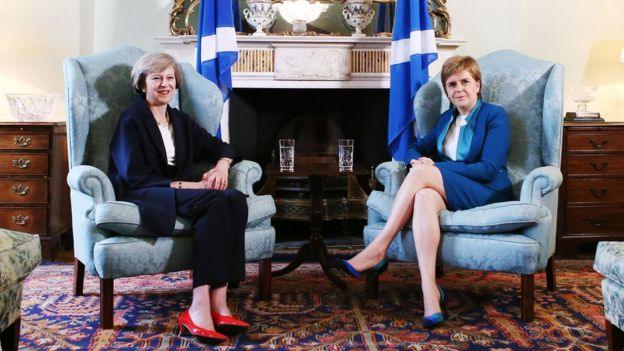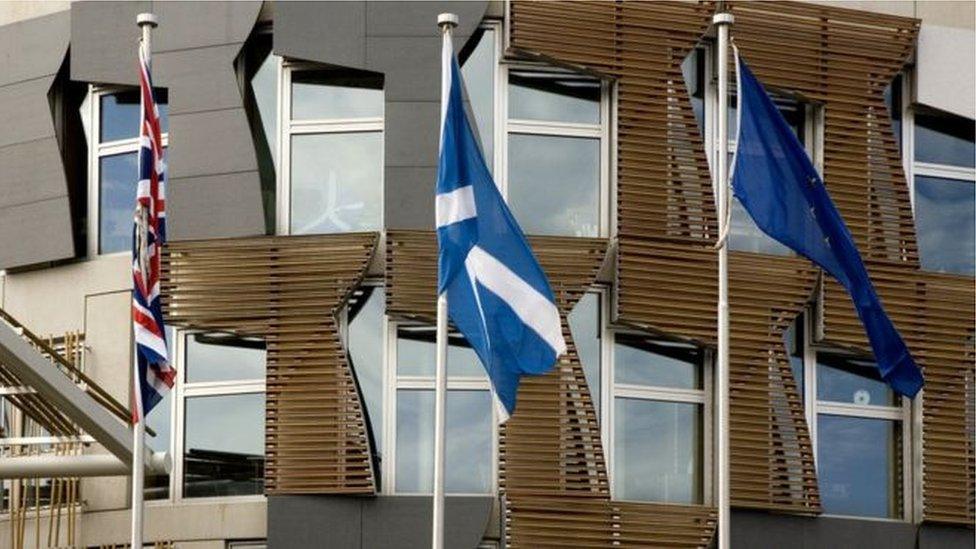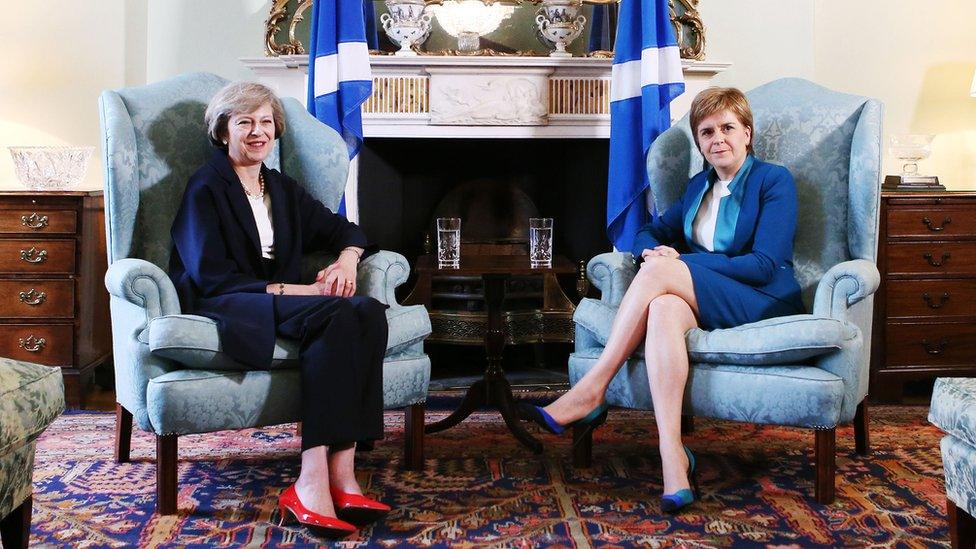Think tank says unionists must offer Scotland EU options
- Published

Theresa May and Nicola Sturgeon have been urged to "explore all options with equal vigour"
Unionists must present options to maintain Scotland's relationship with the EU or risk the break-up of the UK, according to a think tank.
The Institute for Public Policy Research (IPPR) said the Scottish and UK governments must assess all options with "equal vigour".
First Minister Nicola Sturgeon has pledged to explore all avenues to keep Scotland in the EU.
Prime Minister Theresa May has said she will listen to SNP ideas.
But she has described some of the early suggestions as "impracticable".
Ms Sturgeon has also said a second independence referendum was "highly likely" - while Scottish Secretary David Mundell described the idea of Scotland remaining in both the UK and the EU as "fanciful".
The IPPR was formed in the late 1980s by left-leaning academics and was highly influential on government policy during Tony Blair's premiership.
'Significant reform'
Its director Russell Gunson said the Scottish government lacked "a genuine commitment to the UK" so it was up to unionists to present options for Scotland's EU future if they want to protect the UK.
Writing in the Scotland on Sunday newspaper, external, he said: "It is those across the UK who do not wish to see Scottish independence, or those open to exploring all the options, who will need to come forward with other options."
These options "need to be explored with equal vigour and rigour by both the UK and Scottish governments", he said.
"The latter is certainly giving the impression of being up for exploring all the options, but without a genuine commitment in the rest of the UK, and without significant reform to Britain as a whole, a tailored approach to Brexit will not be deliverable.
"And with that, Scotland's options would be narrowed significantly."

He added: "One of the only things we can be sure of at this stage is that the UK - including Scotland or not - will need to change fundamentally, or it will be forced to, in order to meet the multiple mandates delivered by the EU referendum result."
SNP Westminster leader Angus Robertson said on Friday that Scotland was "on the brink of independence."
He followed that up on Sunday by outlining a series of issues in which "Scotland has been ignored, outvoted or overruled" since the general election.
Mr Robertson cited the election of the Conservatives, the austerity budget, Brexit, Trident, bombing in Syria, refugees, the Trade Union Bill, scrapping the Human Rights Act, blocked reforms of the House of Lords and votes for 16-year-olds.
He said: "If the UK government and Westminster parties continue to act against Scotland's wishes as they are - they shouldn't be surprised when the Scottish people conclude independence is the only viable option."
However, oil tycoon and former Scottish government jobs commissioner Sir Ian Wood has warned Scotland "would have very little influence in Europe" as a small independent member of the EU.
'Too divisive'
He said EU accession was "a long process and one that would be damaging, with a lot of uncertainty for the oil and gas industry".
He told the Sunday Times Scotland: "I was in favour of remaining in Europe. I have this idea we are becoming too divisive in the world.
"Everyone wants to be independent, but I think bigger economic units are more successful. We actually have to be better at living and working together."
Shadow finance secretary Murdo Fraser said: "Sir Ian Wood is speaking for many, many families and firms across Scotland who know that our future is more secure as part of the UK family of nations.
"The SNP's position is to argue that because we are leaving the EU, we should also leave the UK - even though the UK market is four times more important.
"The Nationalists now need to put their blinkered obsession with independence to one side and focus on ensuring the UK as a whole gets the right deal as we leave the EU."
- Published15 July 2016
